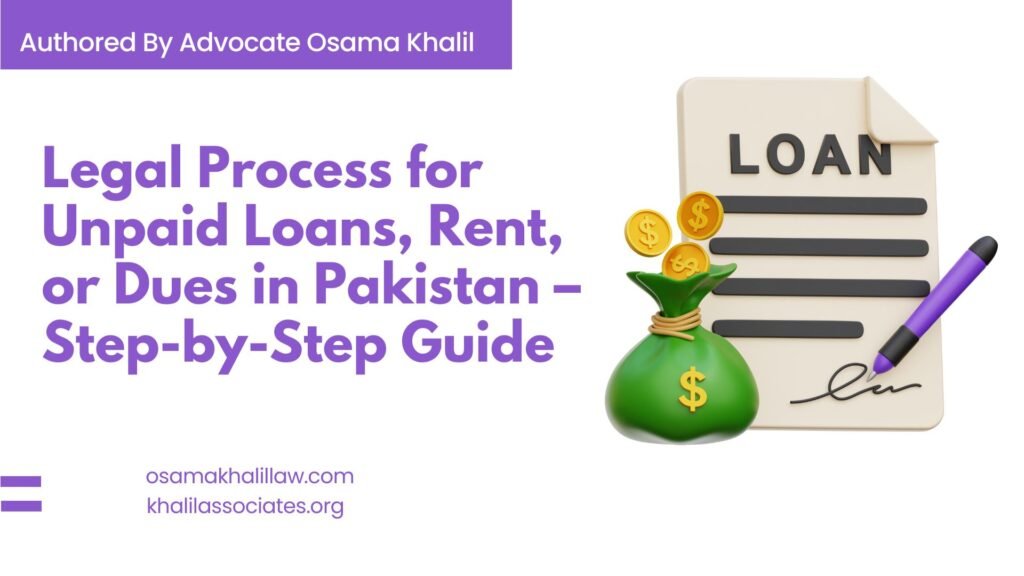
When someone does not pay back a loan, misses rent payments, or ignores dues, the creditor can take legal action. In Pakistan, the debt recovery process follows specific steps under the law. This guide explains the legal process for unpaid loans, rent, or dues in simple terms so anyone can understand.
Step 1: Sending a Legal Notice for Debt Recovery
Before going to court, the creditor must send a legal notice to the debtor. The notice clearly states the amount due and demands payment within a set time. If the debtor ignores this notice, the creditor can proceed with further legal action for debts.
Step 2: Filing a Case in the Relevant Court
If the debtor still does not pay, the creditor can file a case in court. The type of case depends on the nature of the unpaid dues:
- For unpaid loans, the case goes to a banking court or civil court.
- For rent arrears, the case goes to a rent tribunal or civil court.
- For other dues, the civil court handles the matter.
The creditor must submit all relevant documents, such as agreements, receipts, and the legal notice.
Step 3: Court Proceedings and Judgment
Once the case starts, both parties present their arguments. The court examines evidence and decides whether the debtor must pay. If the court rules in favor of the creditor, it issues a judgment for loan recovery or rent arrears.
Step 4: Execution of Court Order
After winning the case, the creditor must ensure the court order is enforced. The court may order:
- Property attachment – The debtor’s assets can be seized and sold to recover the amount.
- Salary garnishment – If the debtor has a job, the court can deduct payments directly from their salary.
- Bank account freeze – The court can freeze the debtor’s bank accounts to recover the money.
Step 5: Alternative Dispute Resolution (ADR)
Sometimes, courts encourage mediation or arbitration to settle unpaid dues without lengthy trials. ADR is faster and helps both parties reach a mutual agreement.
Common Challenges in Debt Recovery
- Delays in court cases – Legal proceedings can take time.
- False defenses by debtors – Some debtors try to avoid payment with false claims.
- Difficulty in enforcement – Even after winning, recovering money can be tough if the debtor hides assets.
How to Strengthen Your Debt Recovery Case
To improve chances of successful debt recovery, creditors should:
- Keep all loan or rent agreements in writing.
- Maintain records of payments and defaults.
- Act quickly when payments stop.
- Hire a lawyer experienced in legal action for debts.
Conclusion
The legal process for unpaid loans, rent, or dues in Pakistan involves sending notices, filing cases, and enforcing court orders. While the system works, delays can happen. Creditors must stay patient and follow the proper steps for loan recovery or rent arrears claims.
If you face unpaid dues, take legal action early to improve recovery chances. Always consult a lawyer for the best advice on debt recovery in Pakistan.
For professional assistance with civil law services and related legal matters, contact Osama Khalil, Lawyer & Legal Consultant. You can reach him at:
Phone: +92-316-1829946 | +92-307-2732223
Email: contact@osamakhalillaw.com | contact@khalilassociates.org
